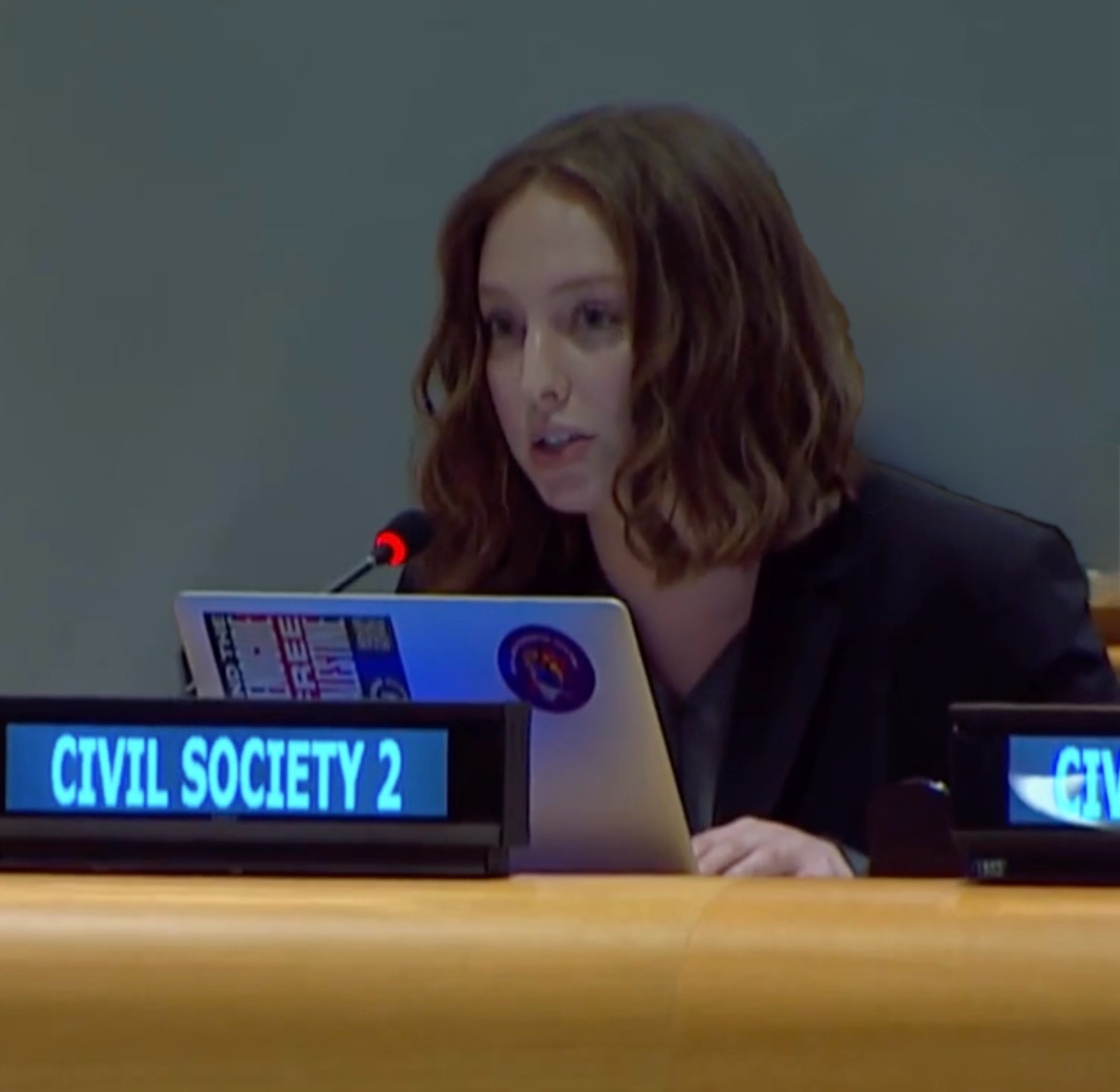On 28 April 2025, Erica Levenson made an intervention on behalf of Regions Refocus and the Civil Society Financing for Development (FfD) mechanism at the 2025 FfD Forum. The intervention was made during a Ministerial Fireside Chat on harnessing trade and technology for sustainable development, convened as part of the 2025 FfD Forum in the lead-up to the Fourth International Conference on Financing for Development (FfD4).
Held at the United Nations Headquarters in New York from 28-29 April, 2025, the FfD Forum brought together Ministers, civil society, and high-level officials for thematic conversations that build on the political momentum towards FFD4. Regions Refocus was the representative of the Trade workstream at the Forum. The intervention began by setting out the context of the current challenges in the multilateral trading system.
Tariffs and customs duties from trade have historically played an important role in bolstering national budgets, especially while countries are developing. But this traditional source of financing for developing countries has been upended by multilateral trade rules that prohibit the use of these tools, and bilateral trade and investment agreements which further pry markets open, in contrast to the strategies used by now-developed countries. Recently, tariffs have come into the spotlight as unilateral coercive measures, which has showcased the structural vulnerabilities of developing countries.
Adding to the challenge of harnessing trade as a source of financing for development is the increasing digitalization of trade. Only 35% of people in developing countries have access to the internet, corresponding to structural inequalities along lines of class, race, ethnicity, and gender. The barriers which have led to this divide are in no small part created by unequal distribution of gains from trade. The repeated renewal of the WTO e-commerce moratorium has cost developing countries an estimated $48 billion in tariff revenue, and least developed countries an estimated $8 billion.
The intervention concluded by emphasizing that the international trade regime has a history of undermining the policy space of developing countries on many issues in addition to digital ones, including through the ISDS mechanism. These injustices are inherently connected.






